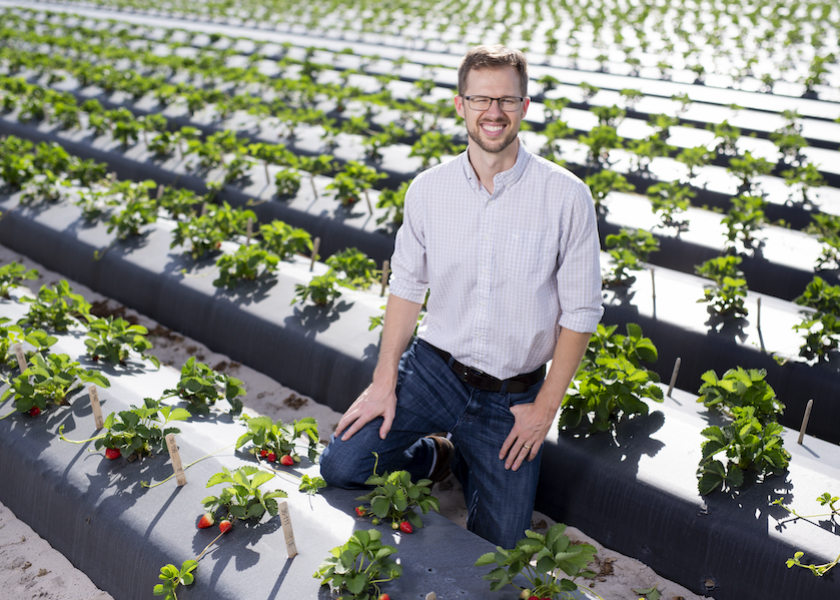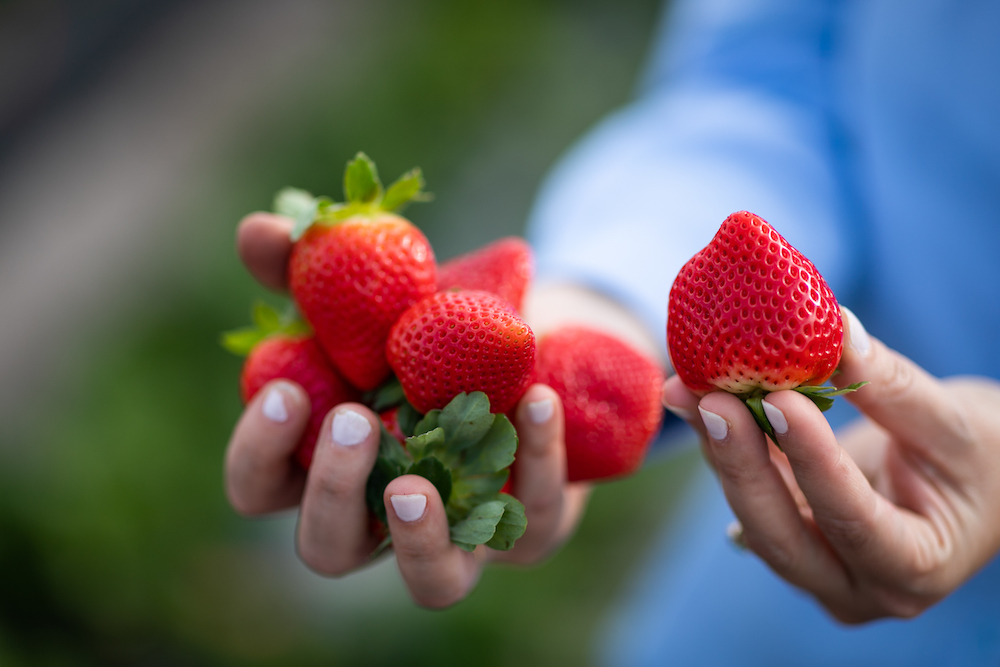FL scientists use computers to breed better-tasting strawberries

Artificial intelligence can tell which strawberries will taste better, according to new University of Florida research.
Consumer panels are the tried-and-true method for UF researchers to gauge whether new fruit varieties taste good enough to keep developing them for the market, according to a news release. But a computer can now tell scientists what strawberries taste and smell like — and, therefore, whether a variety is worth more genetic breeding efforts.
After all, strawberries are a $300 million-a-year industry in Florida.
Vance Whitaker, a UF/IFAS associate professor of horticultural sciences, used an algorithm that gives him the ability to predict how a strawberry will taste, based on the chemical composition of its fruit. The computer method also takes less time than volunteer test panels.
Whitaker published new research in the journal Nature Horticulture Research in which he and his team used taste-test panels and computer technology to identify the volatiles that give strawberries their unique tangy flavor.
Throughout seven years, 384 consumers came to the university sensory lab in Gainesville to give their feedback on flavor and aroma of strawberry varieties. Whitaker and his team compared consumer preferences with results that came from an already established algorithm and found the volatiles he needs to boost in strawberries. He will do that when breeding in the future to improve flavor.

When the data set is huge and involves a lot of variables at once – in this case, about 100 different chemical compounds in each fruit sample and 100 consumer ratings for each sample – machine learning picks out patterns that previous statistical methods cannot.
Working under Whitaker’s supervision, Zhen Fan, a doctoral student majoring in horticultural sciences in the UF/IFAS College of Agricultural and Life Sciences, conducted the AI analysis for the study.
“Some volatiles are more important than others,” Whitaker, a faculty member at the UF/IFAS Gulf Coast Research and Education Center, said in the release. “… now we know which volatile compounds we want to increase in breeding to achieve better flavor.”
Scientists found that if they can measure the sugars, acids and volatiles in each strawberry, they can predict with a high degree of certainty how good it will taste.
“Basically, this helps us breed smarter for flavor,” Whitaker said. “We want to work both harder and smarter. Flavor is a big focus in our breeding program. Our new varieties have improved flavor, and that means the strawberries people buy will taste better.”







